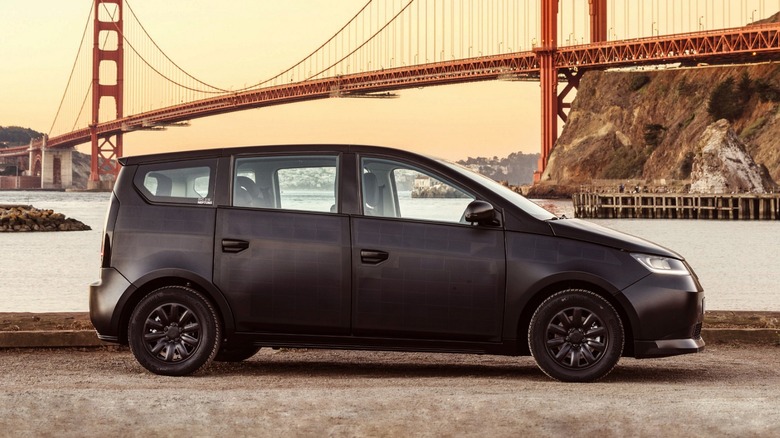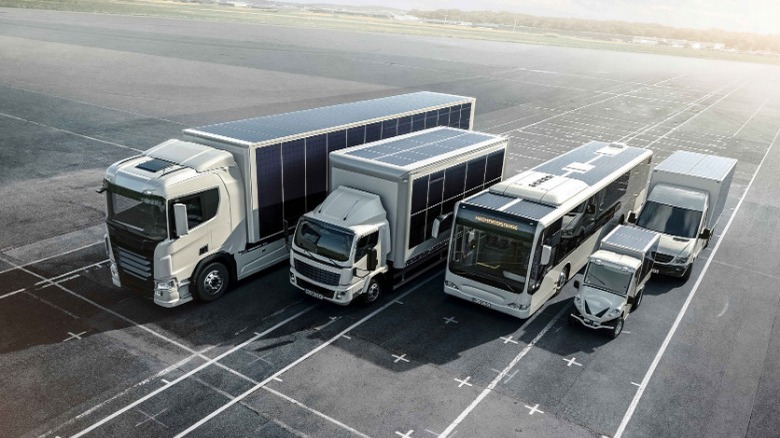This $25,000 Solar-Powered EV Really Was Too Good To Be True
Plug-in electric vehicles seem to be quickly taking over the automotive scene, and for good reasons. Electric vehicles appear to be far less damaging to the environment than their gasoline counterparts, and the driving experience and technology they deliver are enthralling. One issue that has plagued electric vehicles, though, is range anxiety, and the public perception that they are constantly stuck to a charger. This is quickly becoming an outdated opinion, thanks to new charging and battery technologies and the various companies constantly trying to innovate new solutions to increase the range of EVs.
Sono Motors announced back in November 2022 that it was putting the solar-panel-equipped Sono Sion into production towards the end of 2023. The Sion would be developed in-house while the rest of Sono's products involved tackling large-scale transport. The passenger vehicle was set to use the sun's energy to charge the vehicle while on the go, augmenting the unimpressive 190-mile range by 70 miles per week. Unfortunately, it seems as though the $25,000 Sion was not meant to be.
Sono shifts focus to solar tech instead of automotive
Sono Motors announced in a press release on February 24, that it would be canceling the Sion program, despite receiving over 40,000 backers for the solar-powered EV. Solar charging of electric vehicles isn't a perfect solution, as is evidenced by Engineering Explained, and the 70-mile-per-week figure Sono quoted for the Sion. That's not why Sono stopped making the Sion, though. The press release notes that the termination of the Sion program "positions the company to implement significant cost reduction measures," indicating that either the $25,000 asking price for the Sion wasn't high enough, and the costs for the development and running costs incurred as a result of the Sion were simply too high. Sono claims that 90% of the necessary finances for 2023 were generated by the Sion program.
Moving forward, Sono will focus exclusively on retrofitting and integrating solar products into existing vehicles, primarily focused on logistics and transport. Sono has conversion kits available for buses, refrigerated vehicles, and electric vans. This B2B business model is supposed to help Sono reduce running costs and tide it over during the economic downturn.
We have terminated the Sion program. 300 employees are made redundant. If you're hiring or know someone who is, please take a moment to review the Sono Motors Talent Directory👉 https://t.co/WNsRnWFUoA pic.twitter.com/55DqESnDXM
— Sono Motors (@SonoMotors) February 27, 2023
As a result of Sono Motors' pivot, 300 employees were "made redundant," according to a Twitter post in which the company implores potential recruiters to consider its former employees when looking for talent in the space. Posting on Twitter is more than many employers do, but for many employees, perhaps too little too late.

